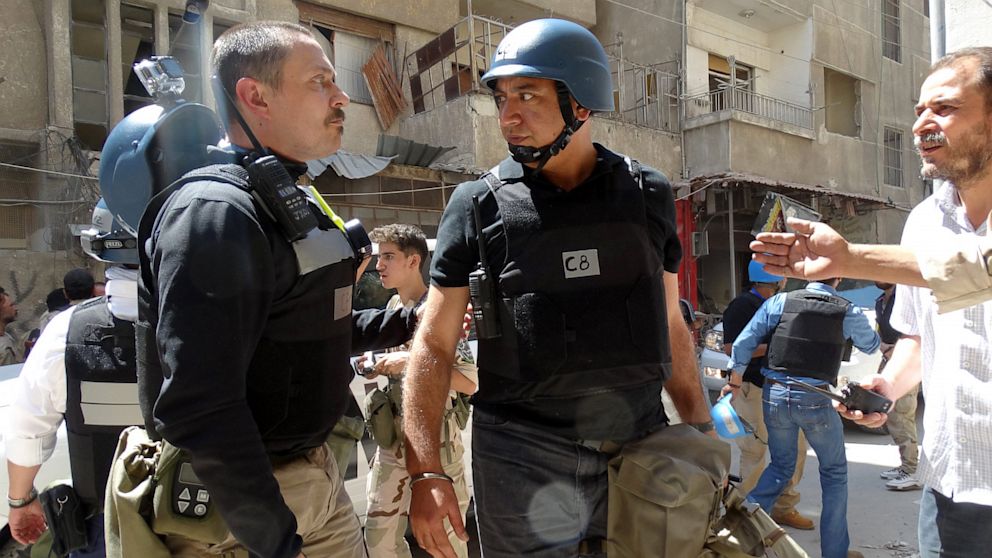Shaping Syrian Disarmament Team Muddied by Rivalries, Money, Politics
Who will be in charge of disarming Syria?

Sept. 20, 2013— -- The world's top diplomats are this week hammering out a deal to locate and destroy Syria's chemical weapons, a proposition that will rely on old rivals working together and require cooperation and coordination across continents by a vast international bureaucracy.
Already diplomats fear that competing regional and national interests, rivalries between agencies, a morass of ambiguous international regulations, and a desire to profit from a potentially lucrative operation, could slow or derail an already delicate process, officials told ABC News.
"This is a four or five-headed monster," said an official at the Organization for the Prohibition of Chemical Weapons, the institution created under the Chemical Weapons Convention treaty, and responsible for assembling the team of technical experts and inspectors.
"Where there's business and money to be made, all kinds of countries and businesses are trying to get dealt in on this," the official said.
Several international organizations and numerous countries will play a role overseeing Syria's disarmament, but the question remains: Who will really be in charge of dismantling thousands of tons of deadly weapon in the middle of a war zone?
"These are all of the complicated issues we're working out," one U.S. official close to the negotiations conceded. Another U.S. official put less fine a point on it, telling ABC News, "It's a mess right now and no one really knows how it's going to work out."
Syria is believed to have a thousand tons of chemical weapons spread over perhaps a dozen locations. A declassified CIA report released by the White House indicated the regime's arsenal includes mustard gas and the nerve agents sarin and VX. The U.S. blames the regime of President Bashar al-Assad for an attack last month that killed more than 1,400 people.
This week the five permanent members of the U.N. Security Council are meeting to flesh out a framework agreement the U.S. and Russia finalized over the weekend that would require Syria to submit a "comprehensive listing" of their chemical weapons by Saturday. Still at issue is whether a future agreement will be backed up with the threat of force by the council if Syria fails to comply.
Behind closed doors, however, diplomats and officials at international organizations warn that coming to a consensus that something should be done might be the easy part.
Who will make up and fund the team of inspectors? What will be the nationality and experience of its leaders? Who will offer inspectors security and protection on the ground? And who will negotiate with the Syrians to ensure they are given access to every site they're entitled to visit?
"Those questions are Topic A this week," said the OPCW official.
The OPCW is an international treaty organization independent from the U.N., but its mandate to operate in Syria, and all of the political wrangling needed to get inspectors into the country and moved safely between sites, would potentially be handled by the U.N.




